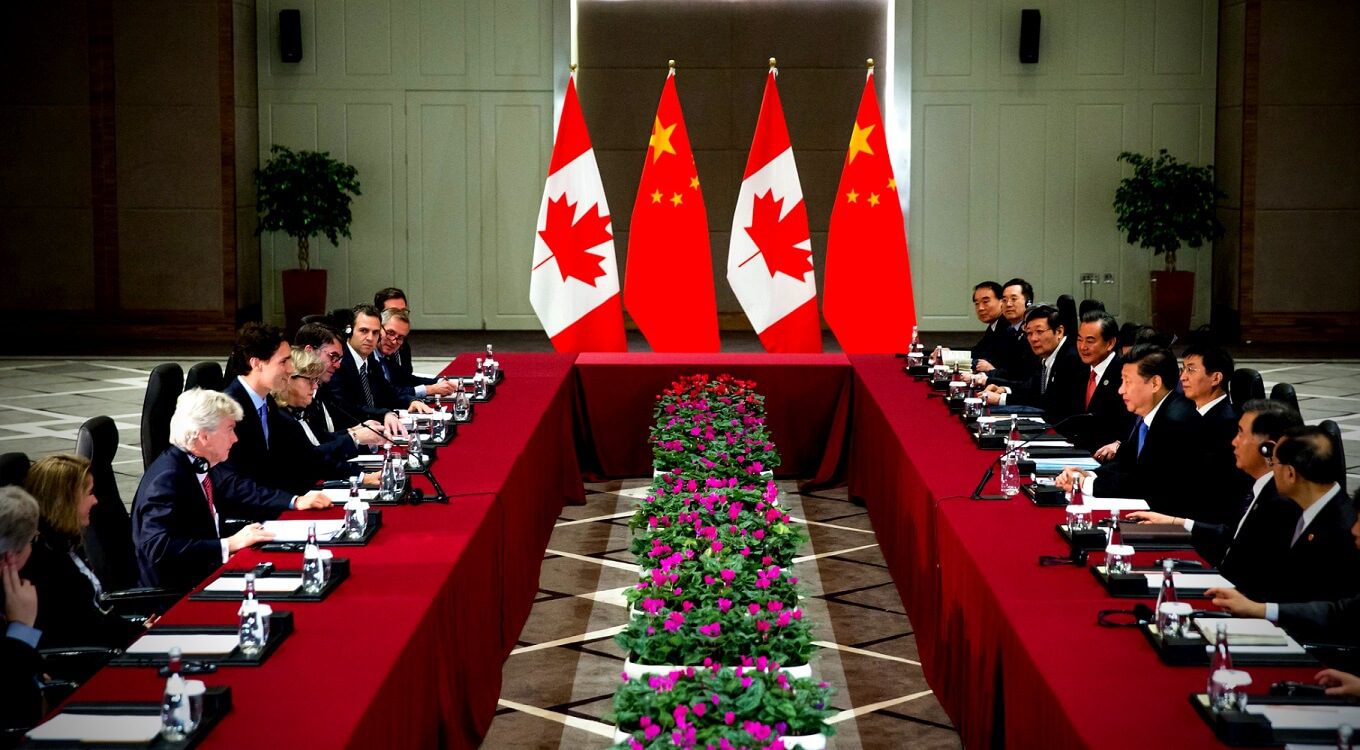 Canadians are nice people, but we can’t allow the Chinese to mess with us. We didn’t build this great country by rolling over to bullies, writes Paul Chapin.
Canadians are nice people, but we can’t allow the Chinese to mess with us. We didn’t build this great country by rolling over to bullies, writes Paul Chapin.
By Paul Chapin, April 12, 2019
China has been holding a Canadian diplomat for four months, and the Canadian Prime Minister says he is “obviously concerned.” What’s obvious is that he is not.
We’re way overdue for Ottawa to take the steps that would free Michael Kovrig, along with Michael Spavor, a second Canadian also being held. China arrested them to muscle Canada into releasing Huawei executive Meng Wanzhou, who is under very comfortable “house arrest” in Vancouver pending possible extradition to the United States at the request of the U.S. Department of Justice.
With the Prime Minister declaring that he is “standing up for the two Canadians” but is required to respect the rule of law, the Chinese accused Mr. Kovrig and Mr. Spavor of espionage, placing them under threat of death. To add to the pressure, a Chinese court held a one-day trial and sentenced Canadian Robert Schellenberg, already serving 15 years for drug smuggling, to death. Then it banned Canadian canola shipments to China by one of Canada’s major producers, Richardson International, threatening Canada’s top agricultural export to China, valued at $2.7-billion in 2017. There’s surely more to come.
Justin Trudeau’s argument that Canada has to respect the rule of law carries no weight with the autocratic one-party regime which rules China. In fact, it is taken as a sign of the weakness that typically leads to submission. If Canada doesn’t take some real action, expect a show trial in which Mr. Kovrig and Mr. Spavor are found guilty of spying, sentenced to death and, if there comes a moment when the Chinese deem it in their interest, executed.
While Ottawa sits on its hands, history offers a way out, a strategy drawn from multiple successes in dealing with another totalitarian state which also used bullying tactics against foreign adversaries, the long-gone and unlamented Soviet Union.
For starters, Canada must clarify the detainees’ status. Mr. Kovrig is not being treated as a diplomat by either China or Canada, but he is one – he is technically on “leave of absence” from the Department of Foreign Affairs. That means he’s still an employee of the Canadian government, subject to reinstatement at any time. Reinstating him wouldn’t grant him diplomatic immunity in China because he’s not accredited there like he once was, but the Chinese will understand the stakes have risen if he regains that status.
Then Ottawa must reciprocate. The Chinese have arrested one of our diplomats – so we should arrest two or more of theirs under espionage charges. Those Chinese would remain in detention for as long as the Canadians do.
The next step would be to escalate the situation. If the prisoners aren’t exchanged soon, expel every Chinese official in Canada known or suspected to be engaged in espionage. For good measure, add all those engaged in “influence activities” – CSIS knows who they are.
As a rule, those first three moves are sufficient to convince an adversary of one’s seriousness of intent, leading to negotiation and resolution of the dispute. But if they are not, it would be time for the government to change the game. Call the relationship into question by closing down consulates; both China and Canada have four in the other country.
And finally, end business as usual. Join the United States, the European Union, Australia and New Zealand in taking a hard look at how China conducts its trade relations, especially terms of trade and industrial espionage. While we’re at it, Canada should ban Huawei from doing business in Canada.
These measures would kick-start a process to free the two Canadians. Canada would no longer be seen as helpless, but rather as an equal with China in resolving the issue. Historically, it doesn’t much matter who started the row – it’s about evening up the score so the parties can begin to negotiate, equal-to-equal. From there, it’s usually a simple process to de-escalate the crisis. At the end, some of your people may have been expelled or blackballed from returning, and you might have had to terminate some exchange programs or close down a consulate or embassy. But you will have secured your objective, and your adversary won’t be so ready in future to try brute force against you.
These measures would also put control back in the hands of Ottawa. Canadians are nice people, but we can’t allow the Chinese to mess with us. We didn’t build this great country by rolling over to bullies – but you wouldn’t know it from how the government has reacted to two innocent Canadians being arbitrarily detained and their lives being toyed with.
Paul H. Chapin is an expert in international-security affairs and is an MLI author. For more than 25 years, he was a Canadian diplomat whose foreign postings included Moscow and Washington. He also served as head of the Soviet section at Foreign Affairs and director-general for international security.




